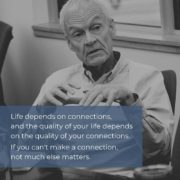Acceptance Of Our Darker Self: A Key To Leadership
I was coaching an executive recently who was sent to work with me by her CEO. The presenting problem was an extremely low score on a recent 360 survey. The results of her feedback were that she was a competent professional but had very poor interpersonal skills. When I tried to get the executive’s perspective of herself, all I got was a positive presentation. She was, indeed, very difficult to reach to and to connect with, just as her scores indicated. Soon after this initial interview started I pointed out the discrepancy between her “polished presentation” of herself and the reality of how others were perceiving her. Her response was that she was always taught to be optimistic and positive, and with a smile on her face, she explained that she just couldn’t understand why the feedback scores were so low.
Her perceived “inauthenticity” was distancing her from those she was most interdependent upon. It’s hard to trust people that won’t be honest with themselves. In reality, she wasn’t phony; it’s just that she was only expressing a small spectrum of herself.
A lack of acceptance of the darker side of herself (e.g. insecurity, fears, resentments, worries, inadequacies) was preventing her from being perceived as “real,” and resulting in people distancing themselves from her. She was also incapable of assessing the full spectrum of what was happening in her culture because she couldn’t see it in herself.
Authenticity is compelling. It also enables you to lead with greater wisdom and resourcefulness. This is our work together: to face and accept some of the darker parts of our nature, the parts we avoid. Connecting with and accepting a fuller spectrum of oneself – especially the darker self – enables us to better connect with others.









